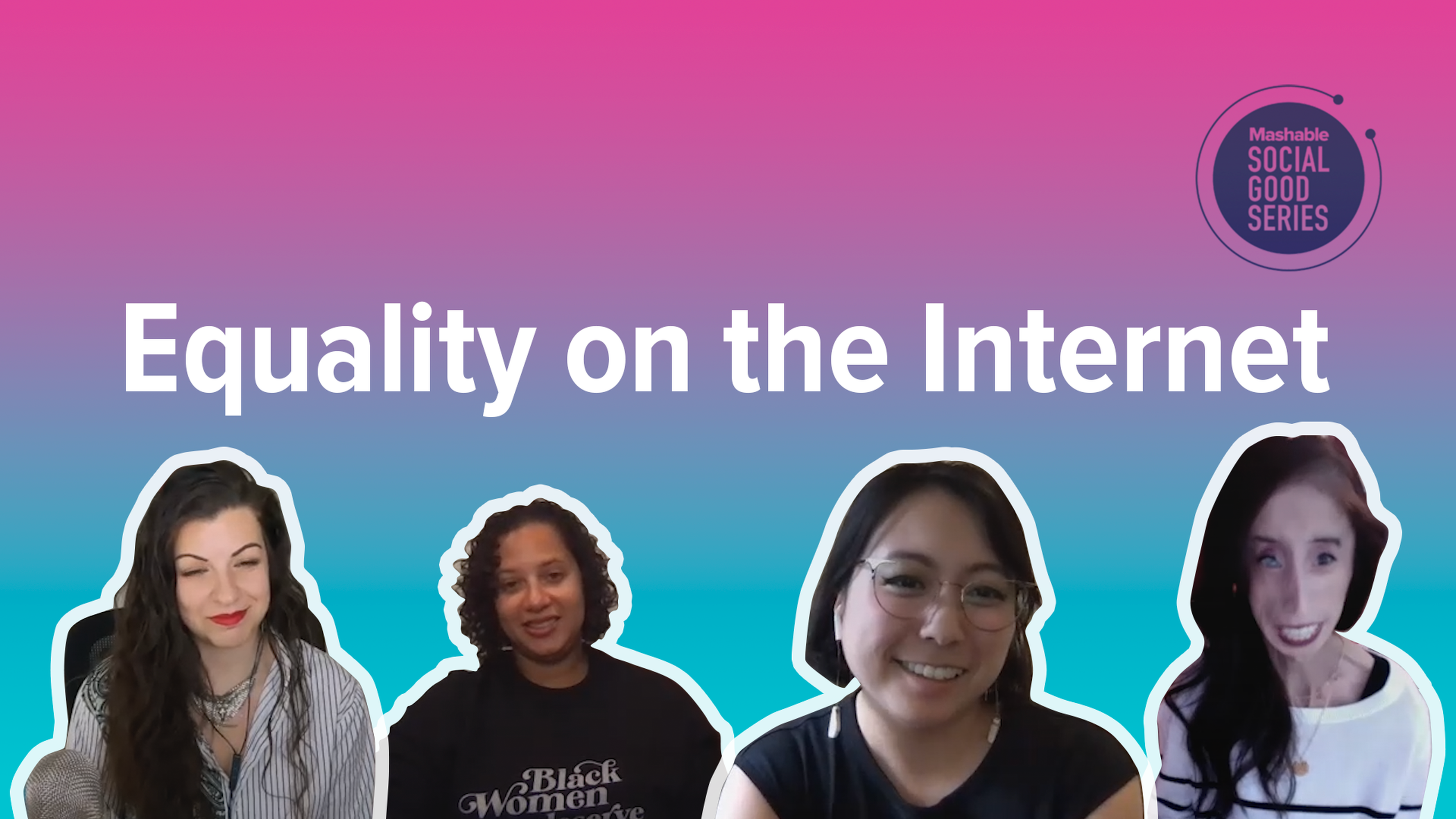The importance of power, accountability, and rest were central themes of this month’s livestream panel for Mashable’s Social Good Series, which engaged three online advocates about what it will take to end the harassment and abuse of women online. October’s theme is gender equality.
Moderated by Sandie Cheng, writer, actor, producer, and host of the Now in Color podcast, the conversation focused first on each panelist’s personal experiences online, and how the internet is both a powerful tool and a barrier for their activism.
Lizzie Velasquez, motivational speaker and author, found her passion for advocacy and public speaking in high school, after speaking about her personal experiences with bullying to a crowd of 400 peers. Alongside advocating for anti-bullying policies, Velasquez has a YouTube channel where she shares stories about her life and highlights fellow activists.
Reproductive justice activist and author Renee Bracey Sherman started her journey a decade ago, after sharing the story of her abortion online. The abuse she faced inspired her to become an advocate for others sharing stories about their reproductive journeys. She is also the executive director of We Testify, an organization designed to uplift the stories of people who have had abortions.
Anita Sarkeesian, YouTuber and media critic, began advocating against abuse in the online gaming community after publishing the Tropes vs Women in Video Games series. She runs Feminist Frequency — a nonprofit that analyzes media representation, and recently founded the Games and Online Harrassment Hotline, a text message based emotional support line for those facing abuse in gaming communities.
The panel continued with ample critique of how social media companies are failing to protect their users, especially women and people of color, as well as the threat of doxxing, the lack of support for victims of online abuse, and the nuances of “calling in” versus “calling out.”
Both Bracey Sherman and Velasquez noted the double standards and lack of follow through by companies, like Twitter, that have announced anti-abuse policies. Sarkeesian suggested that while consciousness about online abuse has increased, the amount of abuse has not changed. And social media companies have shown varying degrees of efficacy and transparency in their safety policies.
“They know that they need to do something… but are they doing things that are actually good and useful for us?” Sarkeesian asked of social media leaders. Later in the panel, she noted the need to understand the power dynamics between large companies and individual users, as well as marginalized versus privileged communities online.
The panelists also gave advice to those struggling with abuse (or burnout) online, as well as action items for viewers moving forward.
All three panelists agreed the most important thing to do is unplug and take a break. Bracey Sherman also recommended users know the repercussions of what they share online, and create a support system of people and resources well before you face possible harassment. Sarkeesian suggested people “incorporate rest” into their lives, and not give into the predominance of “hustle culture” online.
Over time, Velasquez says, the internet has become an integral part of people’ lives. “I look back then, and I feel like the internet was just an accessory to our lives… now, the internet is our lifeline.” But this close relationship can be harmful. Moving forward, the panelists suggested three action items for those plugged in online — show up for the people you love who share their stories, realize the power of your own voice, and turn “call out” moments into places of self reflection.

